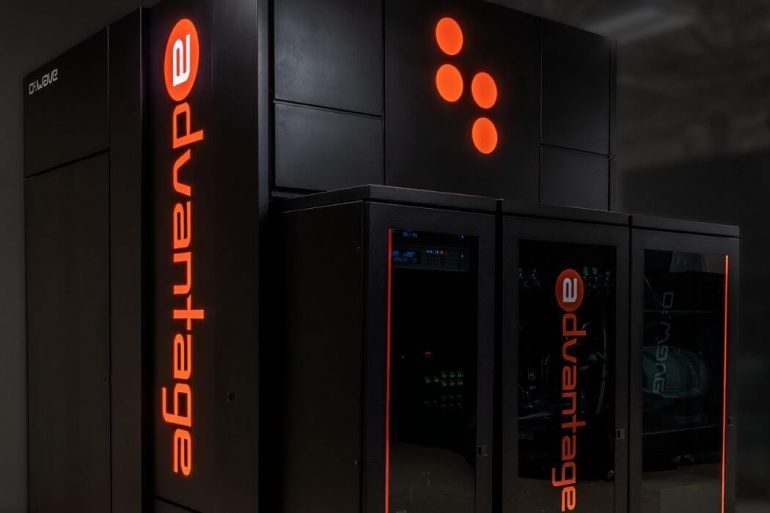Vancouver quantum computing startup D-Wave is going public on the New York Stock Exchange via a special purpose acquisition company (SPAC).
The startup anticipates the transaction will result in up to $430.8 million CAD ($340 million USD) in gross proceeds. DPCM Capital Inc. is the SPAC taking D-Wave public.
The deal is anticipated to close in the second quarter of 2022, and is expected to give D-Wave a valuation of approximately $1.5 billion CAD ($1.2 billion USD).
The transaction has been unanimously approved by the board of D-Wave as well as the board of DPCM Capital.
D-Wave plans to use the proceeds from the transaction to further accelerate its delivery of in-production quantum applications for blue-chip customers, and to build on the 200-plus US patents that have been granted to D-Wave since its founding in 1999. The transaction also represents a milestone in Canada’s market-leading development of a robust quantum ecosystem, the startup said.
Upon closing of the transaction, shares of D-Wave Quantum Inc., a newly formed parent company of D-Wave and DPCM Capital, are expected to trade on the NYSE under the symbol ‘QBTS.’
Following closing, the combined company will continue to operate from D-Wave’s R&D and head office location in British Columbia. The transaction has been unanimously approved by the board of D-Wave as well as the board of DPCM Capital.
According to the startup, the transaction is expected to enhance its leadership in commercial quantum computing and accelerate quantum use cases into significant customer segments, including manufacturing, logistics, pharmaceuticals, finance, and government.
Two bonus pools are being established as part of the transaction. One bonus pool of five million shares will be allocated pro-rata, or in proportion, to non-redeeming stockholders of DPCM Capital.
A similar bonus pool of up to 1.8 million shares has been established for Private Investment in Public Equity (PIPE) investors to ensure the same effective cost basis for PIPE investors as for public stockholders of DPCM Capital.
The PIPE is led by new and existing investors including leading Canadian public-sector pension-plan manager PSP Investments, NEC Corporation, Goldman Sachs, Yorkville Advisors, and Aegis Group Partners.
Mark Johnson, vice president of quantum technologies and system products at D-Wave, told BetaKit that the new financing is all about placing the startup in the best position to accelerate its momentum.
“The transaction is expected to give us the capital to continue our work to commercialize our product leadership from our base in British Columbia,” Johnson said. “Our R&D teams in Burnaby will continue to lead the efforts to provide the next generations of quantum computers, both those based on quantum annealing, as well as furthering our new gate-model program.”
“As a country, Canada has been at the forefront of quantum innovation, and we’re proud that global investors are coming to recognize the value and potential of the commercial technology we’re developing here,” he added.
SPACs have become a popular mechanism for taking startups public, but the market hasn’t been kind to them. In an analysis, CNBC called the market “oversaturated,” and noted that “companies that went public via blank-check deals have been among those worst affected by January’s tech-driven sell-off.”
Last October, travel tech company Sonder lowered its expectations before its reverse takeover deal with a SPAC, changing its valuation from its original estimate of $2.2 billion to $1.9 billion, calling it a “strategic revision of the transaction terms.” The company went public in mid-January.
DPCM Capital is incorporated as a Delaware corporation and was formed in 2020 for the purpose of effecting a merger, capital stock exchange, asset acquisition, stock purchase, reorganization or similar business combination with one or more businesses. The company focused its search for businesses within the technology sector, and on North American-based targets with an aggregate enterprise value of $1 billion to $2 billion.
DPCM Capital’s chair and CEO is Emil Michael. His experience includes working as the COO at Klout, which was sold to Lithium Technologies in 2014, and employment as Uber’s chief business officer from July 2013 to June 2017.
“Today marks an inflection point signalling that quantum computing has moved beyond just theory and government-funded research to deliver commercial quantum solutions for business,” said D-Wave’s CEO, Alan Baratz.
“As a country, Canada has been at the forefront of quantum innovation, and we’re proud that global investors are coming to recognize the value and potential of the commercial technology we’re developing here.”
– Mark Johnson,
D-Wave
“We are working with our customers to identify applications with high likelihood of quantum value and to translate those problems to run on the quantum computer and then validate that value,” Baratz said. “We expect this ‘value creation and validation’ to accelerate as an increasing number of diverse use cases emerge—creating a robust cycle of product delivery, application development, and market growth.”
D-Wave announced in January that it was expanding its work with the Forschungszentrum Jülich Supercomputing Centre in Jülich, Germany, by providing a physical annealing quantum computer. The move was part of the startup’s ramp-up in the race to so-called quantum supremacy – the bid to become the first to successfully commercialize quantum computing.
Founded in 1999, D-Wave is a longtime staple of the Canadian tech ecosystem. It was the first startup to offer a commercially available quantum computer.
D-Wave received $40 million in financing in 2021 from the federal government. The Strategic Innovation Fund financing was meant to support D-Wave’s $120 million development of quantum computer hardware and software systems.
D-Wave’s systems are used by some of the world’s most advanced organizations, including NEC Corporation, Volkswagen, DENSO, Lockheed Martin, Forschungszentrum Jülich, University of Southern California, and Los Alamos National Laboratory.
With its headquarters and the Quantum Engineering Center of Excellence based near Vancouver, D-Wave’s US operations are based in Palo Alto, Calif. D-Wave has a blue-chip investor base that includes PSP Investments, Goldman Sachs, BDC Capital, NEC Corp., Aegis Group Partners, and In-Q-Tel.
Feature image courtesy D-Wave.

